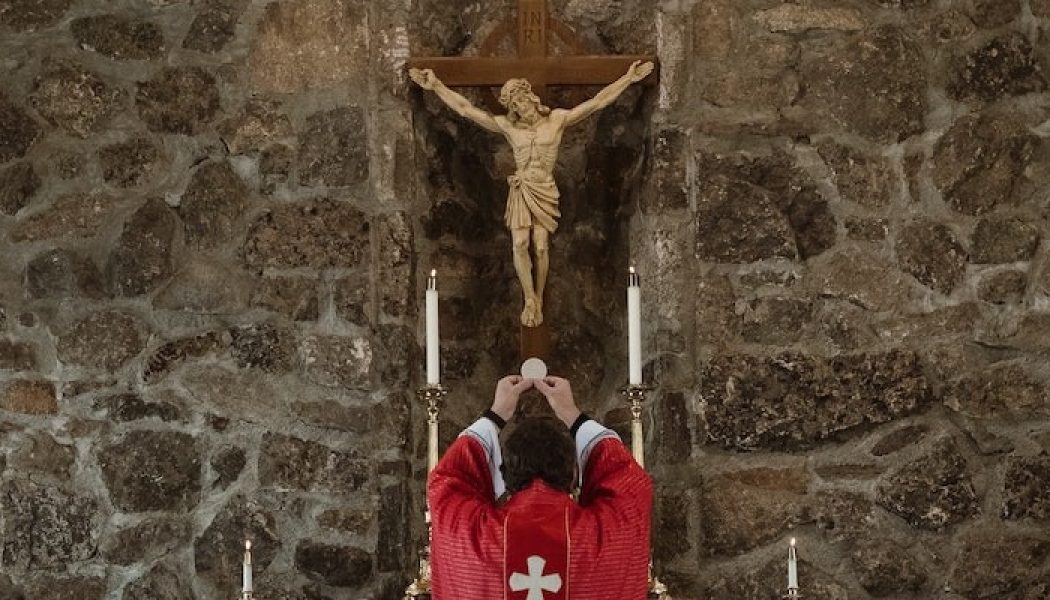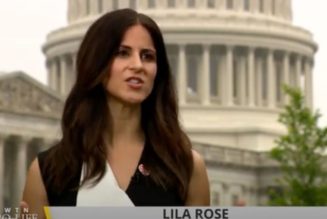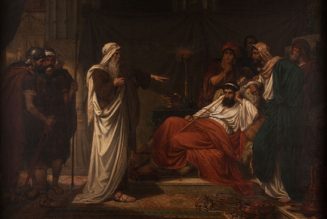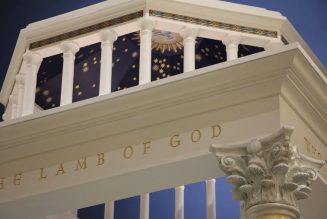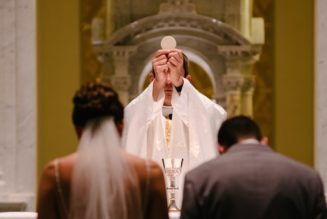
Catholics are understandably unsettled, even angry over the Church’s response to COVID-19. Although the Church (especially the clergy) is divided on it, we need to approach the question with charity. It does no good to accuse advocates of maintaining the sacramental life of such things as pretentiousness, libertarianism, disregard for science, recklessness, individualism, or narcissism. All interlocutors need to make proper distinctions in the interest of clarity, fairness, and service to the Church.
We all have a moral obligation to make prudent efforts to protect the good of human life. No doubt there are natural law justifications for the Church’s response to this pandemic—the suspension of public Masses and, in some dioceses, the suspension of sacraments. But the bigger picture should shape our approach to the moral and spiritual issues at hand. Naturally, we should err on the side of safety when it comes to human life. But we should also do so when it comes to the supernatural life.
The “safety” of the soul, our Lord teaches us, sometimes requires forgoing our physical safety. The Christian faith prioritizes these in a strict way. Prudence is formally defined and exercised only with reference to the end—in particular, man’s ultimate end. Christian prudence subordinates every natural end to that of supernatural life. As Jesus says: “And if your right hand causes you to stumble, cut it off and throw it away. It is better for you to lose one part of your body than for your whole body to go into hell” (Matthew 5:30). “A disciple said to him, ‘Lord, first let me go and bury my father.’ But Jesus told him, ‘Follow me, and let the dead bury their own dead’” (Matthew 8:22). These are not general counsels to self-maiming or neglect of the dead, but warnings that our supernatural end may require us to sacrifice natural ends.
Our Lord has set forth criteria and a model for action that does not nullify the natural law, but asks us to go beyond it. This is the radical teaching and very example of Jesus. But we cannot do this of ourselves. “‘Truly, truly, I say to you, except a man be born of water and of the Spirit, he cannot enter into the kingdom of God’” (John 3:5). “Truly, truly, I say to you, unless you eat the flesh of the Son of man and drink his blood, you have no life in you” (John 6:53; cf. John 6:56). Our Lord has told us that the sacraments are necessary for salvation, and necessary to have spiritual life. No amount of watching Mass on television or making spiritual communion can substitute for a real sacramental life.
The need for the sacraments is more pressing than ever. The Church’s spiritual children have been crying with loud pleas for help. And they have not been crying for protection from COVID-19, but for protection from another, much more real, form of death that surrounds us all the time. The peril of spiritual death has grown in strength from the moment that those holding power over the sacramental presence of Christ chose to retreat.
Frequent access to the sacraments is the principal weapon against the world’s demonic forces. Unsurprisingly, rates of alcohol abuse and pornography have skyrocketed since the church doors were closed. The wolf is scattering the fold and snatching sheep away. If all we have to show for it is that we survive, is this real prudence? “What does it profit a man to gain the whole world but to suffer the loss of his soul?” (Mark 8:36). “Do not fear that which kills the body but cannot kill the soul; rather fear him who can destroy both soul and body” (Matthew 10:28; Luke 12:45).
This is why the Church insists upon the right of the faithful to receive the sacraments, a right that is grounded upon a corresponding need. This right is not merely canonical, but of the divine order. Where there is greater need, moreover, the greater is the obligation to bring to those in need Christ’s saving power. It is difficult to conceive parameters under which a bishop or pastor could forbid a priest from doing that. What father (natural or spiritual) would willingly deprive his children of his assistance when they are in peril? By virtue of their relationship, it would be a grave injustice. Many priests continue to bring the sacraments to the faithful in a variety of innovative ways. This not only ensures the flow of God’s saving mercy, but is of great consolation to those they serve, and a lesson to all about our Lord.
Why is it deemed rational for supermarkets, liquor stores, marijuana stores, and abortion clinics to remain open while our churches are closed and liturgies and pious devotions suspended? Not natural food, but the sacraments (especially the Eucharist) are able to sustain us supernaturally. It is ironic that we can buy doughnuts at the grocery store yet are unable to obtain from our bishops and priests Mass and regular access to communion—which is supposed to be the “source and summit” of the Christian life (Catechism of the Catholic Church, 1324).
This is not to suggest that the intention behind Church policy has been to directly shut down the liturgical life, or that that liturgical life has altogether come to a halt. But our liturgical life has been diminished, and it is difficult to reconcile this with the Church’s own teaching about the centrality of the liturgy in the spiritual life, the exercise of our baptismal dignity, and our combat against the prince of this world.
Of course, we must take precautions and employ prudent means in bringing Christ sacramentally to all in need. But prudential vigilance cannot supplant the Church’s primary duty to pastor the flock, lest it cease to be prudent at all. In some states, secular authorities have made allowances for religious leaders and religious activities, and priests have found many creative solutions to present challenges. The lives of saints like Charles Borromeo, Damien of Molokai, Aloysius of Gonzaga, and John Bosco—all of whom dealt with diseases far more deadly than COVID-19—show us how to act.
Numerous priests now find themselves torn between their love for Christ and his body and their obligations of canonical obedience to their ordinary. For many, faithfulness to the bishops involves a conflict of conscience. We Catholics believe, of course, that obedience to Christ is fulfilled by way of obedience to ecclesiastical authority. “Let priests sincerely look upon the bishop as their father and reverently obey him” (Lumen gentium, 28). “The laity should . . . promptly accept in Christian obedience decisions of their spiritual shepherds, since they are representatives of Christ” (Lumen gentium, 37).
Ordinarily, a Catholic should embrace the bishops’ guidance in all of its forms. “He who hears you hears me, and he who rejects you rejects me” (Luke 10:16). That allegiance is not necessarily withdrawn, however, when, owing to extraordinary circumstances, one is obliged to oppose the directives of an ecclesiastical superior. There are occasions when one should not follow those dictates by reason of a false exercise of authority that is contrary to the gospel. For example, former Cardinal Theodore McCarrick, Bishop Michael J. Bransfield, Bishop Pierre Cauchon (1371–1442), and Patriarch Nestorius, some of whose ecclesiastical decisions should have been resisted or ignored, illustrate this point.
There are limits to a bishop’s demand for obedience, first and foremost among which is the divine law, followed by the natural law and canon law. Any order to perform an intrinsically evil act, or any order contrary to divine law, for example, must be disobeyed. Similarly, any order contradicting canon law can be refused. Priests have duties and rights which the exigencies of ecclesiastical discipline cannot abolish but must, in principle, protect. Faithfulness to the gospel of Jesus Christ and obedience to Church authority cannot be separated; and following the example of our Lord is the guarantor of true unity with one’s ecclesiastical superiors. All of us need to pray for our bishops at this time, that they receive the light and strength to confront the adversary and adhere to the demands of the gospel.
I would like to share something personal here. As someone who has been practicing social distancing for the past 20 years, and for whom, in many respects, the challenges of COVID-19 are nothing new, what I have experienced in tending to the extraordinary health needs of my own children can cast light on the present situation.
In June 1999, we had our eldest son. He was diagnosed with a rare genetic immunodeficiency known as chronic granulomatous disease (CGD), a disease that severely impairs the body’s ability to defend itself from bacterial and fungal infections. Since then, my wife and I have been blessed with four more children, two of whom, like our firstborn, suffer from the same disease. Incessant hospital life, including two bone marrow transplants and another transplant to go, along with meticulous social distancing due to the lethal risks of contagion, summarize my family’s routine for over two decades now. Every philosophy of treatment that medical professionals have presented to us has emphasized extreme caution regarding social interaction, isolation measures, sanitary practices, and numerous other observances for the sake of protecting the health of our children.
What our nation is experiencing right now is in many ways nothing new for my family. In caring for our children over the last 20 years, my wife and I needed to take certain risks, learned to balance conflicting needs, and, to the best of our ability, prudentially prioritized difficult choices.
Some of our practices may be ill-advised from the strictly medical perspective. But that perspective is incomplete, and as every good parent understands, there are other and more important factors to consider. These factors include a child’s psychological flourishing and his simple need to know that he is loved and is part of a family that cares for him. Thus a parent will make allowances, as we have, for hospital visits from a dear friend while a sick child is in isolation, or for sometimes playing outdoors with other children, even if doing so may expose our children to disease.
Preeminent for us, however, has been the spiritual health of our children. Nourishing and preserving their supernatural life, as our very first parental duty, has consistently meant exceeding certain boundaries pertaining to their physical health. Mass, and the liturgical life in general, has been a non-negotiable—even while it has meant distancing ourselves from others by sitting in back corners of churches, refraining from the sign of peace, and taking other similar precautions.
Yet we have done nothing heroic or extraordinary. Any other approach to the overall well-being of our children would be spiritually negligent. Naturally, our striving to assure an active and sacramentally-sustained spiritual life for our children has implied sacrifices and carefully considered risks, but this is far more a source of joy than pain.
Every priest should be given the freedom to do the same in the present situation. Every true father and every true mother will unhesitatingly attest: We would joyfully lay down our lives a hundred times for the lives of our children. If this sentiment can shape the natural bond between a parent and a child, how much more should it define the relationship between a spiritual father and his children? Living in a bubble might be a safe course of action for the body, even prudence in the eyes of the world. But it is no solution for the good of the soul.
Stephen A. Hipp is professor of dogmatic theology at the Saint Paul Seminary and University of St. Thomas in Saint Paul, Minnesota.
